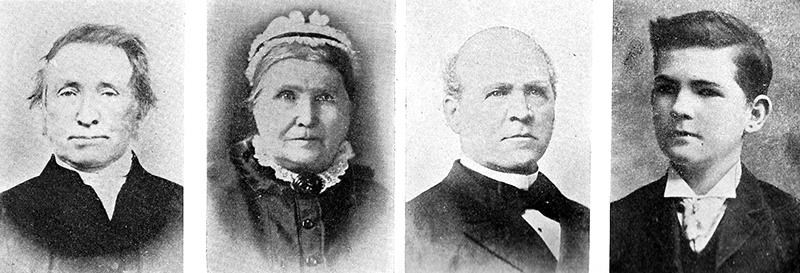Thorold Township and Town, 1786-1932
Published by John H. Thompson
In 1849, Thorold Township contained 3,695 inhabitants. Thirteen grist mills and six sawmills were then in operation within its limits. From the crop of 1849, a total of 40,000 bushels of wheat and 29,000 bushels of oats were produced, while 17,000 pounds of butter were made in that year. Cleared farms sold for 5 pounds, 10 shillings per acre, although wild land could still be bought at 30 shillings an acre.
In 1850, a Provincial Council was formed for the county of Welland, and on April 21, 1856, the counties of Lincoln and Welland were finally separated. The Canada Gazette of May 12, 1856, contained a proclamation of Sir Edmund Walker Head, declaring the union of the counties dissolved. Hervey W. Price of Thorold was appointed Judge of the County and Surrogate Courts.
This riding was only once represented by a Thorold man in the Parliament of the United Provinces of Upper and Lower Canada. Duncan McFarland of Port Robinson defeated the Conservative candidate, James Cummings of Chippawa. At the next election, he was himself defeated by T. C. Street of Niagara Falls. Dr. Frazer of Fonthill also represented this county in the old Parliament before Confederation, but he was really a citizen of Pelham.
When the Dominion was formed in 1867, T. C. Street was elected for the House of Commons from this riding. In 1872, Dr. King of Port Robinson was the Conservative candidate, while the Reformers had nominated William A. Thomson. The contest was an exceedingly close one, but Dr. King was defeated by 59 votes.
In 1887, another Thorold representative was nominated in the person of Thomas Conlon, the Reform candidate. He opposed Dr. Ferguson of Niagara Falls, but the latter was elected. In 1892, James Lawson of Thorold was the Conservative candidate, but he was defeated by James Lowell of Niagara Falls South.
In 1896, the Reformers again nominated Lowell, but the Conservative candidate, William McCleary of Thorold, was elected.
In the Ontario Legislature, the first representative of this riding was William Beatty of Thorold, who defeated John Pew of Stamford, the Conservative nominee, in 1867, by a majority of 202. Through upholding the Coalition Government of John Sandfield McDonald, Beatty ceased to represent the Reformers. At the next election, in March, 1871, he was again a candidate for the House of Assembly, his opponent being J. G. Currie of St. Catharines, who appeared in the field as a supporter of party government. Currie was elected by a majority of 139.
In 1886, the Conservatives nominated Alex Fraser of Thorold, but he was defeated by Col. Morin of Ridgeway, the Reform candidate. In 1890, the Conservatives were more successful, and William McCleary of Thorold, the member of the Dominion House, was elected. He was again nominated in 1894, but was defeated by William German of Welland.
In the Australian Parliament, also, Thorold has had a representative, the youngest son of George Keefer having been member for Melbourne. He was the first Canadian that ever sat in the Australian House.



